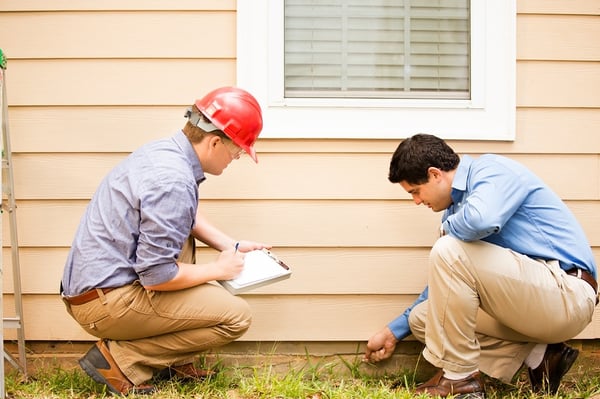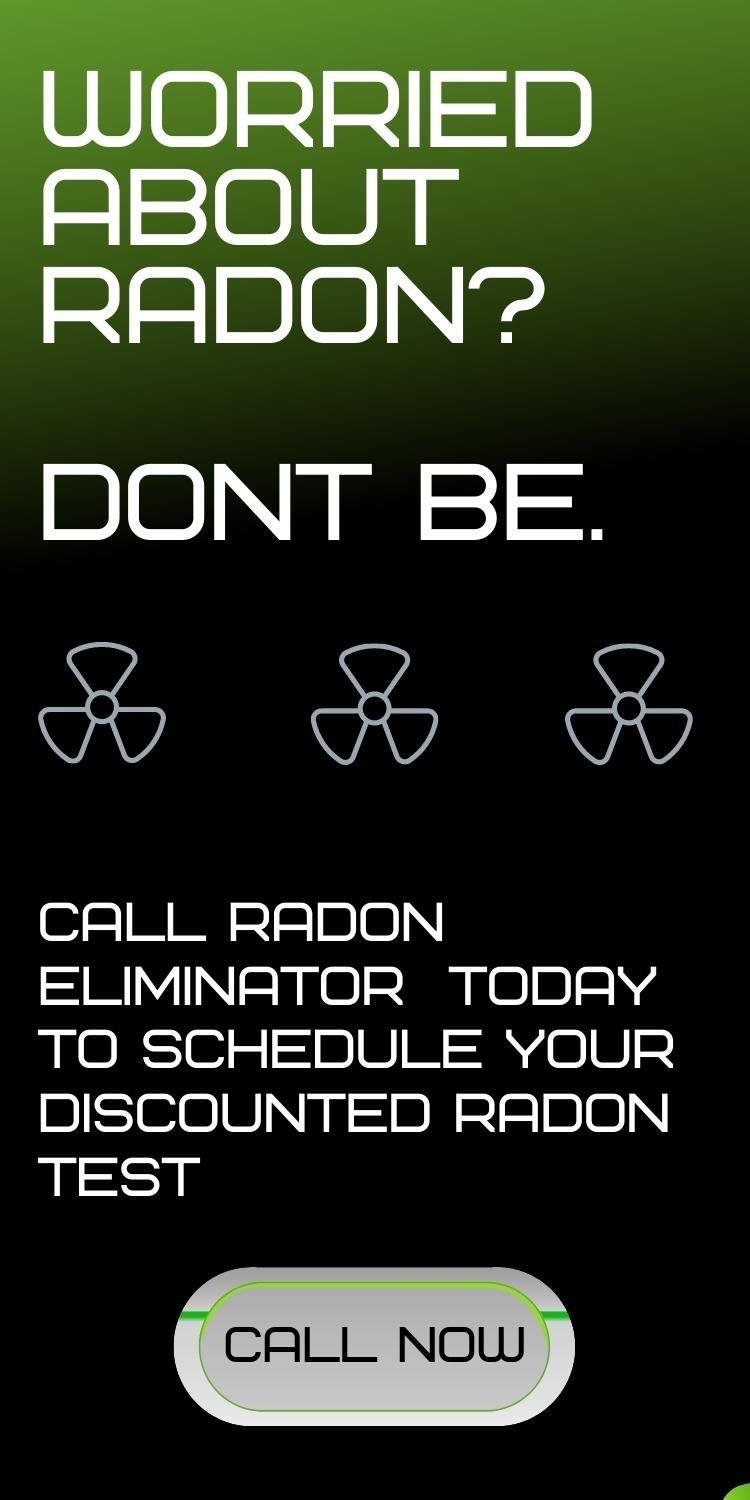Hopefully you've heard of radon and radon poisoning by now, but many people haven't.
If you haven't heard of radon yet, it's a radioactive gas that can be extremely dangerous in high quantities.
Radon is a naturally occurring element that develops from the radioactive decay of radium.
The United States Environmental Protection Agency (EPA) classes radon as a carcinogen, meaning that radon poisoning can lead to cancer.
Radon is actually the leading cause of lung cancer, right behind smoking, claiming nearly 21,000 lives a year.
A question we get a lot here at Radon Eliminator is, "what are the symptoms of radon exposure?"
People want to know if the pain they're experiencing is due to elevated levels of radon.
And, more specifically, they want to know if they get their headaches because of radon exposure.
Even if you don't have headaches, are you concerned you may have been exposed to radon? Read our blog post: "Am I at Risk for Radon Poisoning?"
In the article below, we'll talk about radon poisoning, and find out if you can blame your headaches on radon exposure.
Table Of Contents
- What's Radon Poisoning?
- Does Radon Poisoning Cause Headaches?
- Health Effects of Radon Poisoning
- Radon Risks In Your Home
- Radon Poisoning Prevention
- Contact Radon Eliminator Today
What's Radon Poisoning?
Radon is the end product of radium decay.
Radon poisoning occurs when large amounts of radon enter your body and cause harmful physical changes.
Radon is naturally occurring, and as a colorless, odorless, tasteless gas, radon is undetectable by human senses.
We could be exposed to elevated levels of radon gas for years without ever knowing.
Most people don't know they have radon poisoning until it results in a lung cancer diagnosis.

Does Radon Poisoning Cause Headaches?
Now for the answer to the question everyone is asking; does radon gas cause headaches?
No.
Kind of underwhelming, I know.
Radon poisoning is symptomless, meaning that it doesn't give any meaningful indication of exposure.
That means it's not giving you headaches.
Like we said earlier, we can't smell, see or taste radon, and it doesn't produce any effects on your body until it causes lung cancer.
This is what makes radon poisoning especially dangerous.
Because of this, taking all the necessary precautions against radon exposure is extremely important.
If you ever start coughing up blood, experiencing chest pain, or have difficulties breathing, you should visit your doctor right away to rule out the possibility of lung cancer.
Health Effects of Radon Poisoning
Believe it or not, in the early 20th century, some doctors believed radon was actually good for you.
People would actually pay money to spend time in "radiotoriums" to be bombarded by radon gas.
In our blog we've even written about tourists who soak up radon on vacation.
Companies even tried to add radon to drinking water, but luckily the short half-life of radon meant that it had disappeared before the water got to anyone.
It wasn't until years later that the negative health effects of radon were discovered.
In the 1940s and 50s, mining companies didn't really use ventilation systems.
Doctors then started attributing many cases of lung cancer in miners to radon inhalation.
Despite this, radon-induced lung cancer in miners remained a significant hazard until the 1970s.
Fortunately for us, it is now widely known and accepted that inhaling large quantities of radon gas has the potential to cause lung cancer.
Radon Risks In Your Home
Unfortunately, the dangers of radon gas aren't limited to mines.
Your house can become filled with radon gas, and be unsafe for you and your entire family.
Radon gas seeps into the air from the soil.
If your home has cracks in its foundation or any of the walls, radon gas can seep into your home through those cracks, and get stuck inside.
When enough radon gas builds up in your home it becomes unsafe, and over time, could lead to lung cancer.
Anyone who spends a considerable amount of time in your home is susceptible.
And there's no way to know if your breathing in toxic levels of radon gas unless you've taken an active role in radon prevention.
Radon Poisoning Prevention
It's estimated that 1 in 15 homes in the United States has elevated levels of radon.
The only way to know if your home has elevated levels of radon is to have it tested.
Luckily, radon test kits are widely available and won't break the bank.
Every radon testing kit includes a collector. The collector is left in the lowest inhabited room of the house for 2-7 days for a short term test. For most people, that's their basement.
Wondering if you are able to check for radon in your home yourself? Read our blog post: "Can I Test for Radon Myself?"
After the time is up, the collector is sent off to a laboratory to be evaluated.
If your radon readings are high, there are several things you can do to bring them down to a safe level.
The most common methods are:
- Soil Suction: This method consists of a vent pipe system and a fan that pulls radon from under the soil under the house, venting it above the house to the outside.
- Better Ventilation: Making sure the air in your home will do a great deal in helping keep your radon levels normal. You should also avoid moving radon on the lower floors to the rest of your home.
- Radon Sump System: A sump is a cavity under your floor where a pipe is inserted. A fan pulls air and radon up and away from the home.
- Positive Pressurization: A positive pressurization system constantly blows fresh filtered air into your home to clear out radon.

Contact Radon Eliminator Today
Even though radon gas isn't the reason for your headaches, the health effects are significant.
Radon poisoning is the second leading cause of lung cancer, and people usually don't know they've been exposed until they've been diagnosed.
That's why detection and prevention are key to keep your family safe from radon poisoning.
You can buy an at-home test, but to be sure everything is done correctly, and to ensure your family is safe, you should let the professionals handle it.
The team at Radon Eliminator will test your home for radon, and if necessary, they will help you decide the best course of action to lower your levels.
Don't wait too long to get your home tested. The health of you and your family could be at stake.





